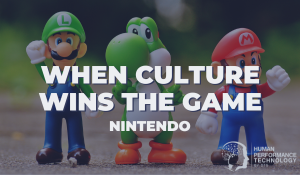When Positive Thinking is Dumb. When It’s Smart.

“The first principle [of science] is that you must not fool yourself – and you are the easiest person to fool.” — Richard Feynman, Nobel Prize-winning theoretical physicist

Generally, I will identify with the label “sceptic.”
By this, I don’t mean to imply that I’m a “Debbie Downer” who is trigger happy on negativity and criticism.
Basically, I’m Lisa Simpson in this conversation:
- Marge: Don't worry kids, I'm sure your father is alright.
- Lisa: What are you basing that on, mom?
- Marge: ... who wants ginger snaps?

On a less composed day, this guy:

There are a few core principles involved in this way of thinking:
#1: Humans are highly error-prone and biased. Avoid feeling absolutely certain about anything.
#2: Confidence in a proposition should be proportional to the evidence.
#3: Reason and science are the best known tools to determine "the facts."
#4: Seek to believe what is most likely to be true; not what you want to believe.
#5: Be humble. As the evidence changes, be ready to change your thinking.
Based on the same standard (i.e., the burden of proof) that obliges me to doubt “gut feel” as a reliable hiring solution, and refrain from recommending “blind hope” as an alternative marketing strategy, I'm also sceptical of astrology, homeopathy, tarot cards, tea leaves, voodoo, palm reading, dowsing, psychic powers, dream interpretation, channeling, clairvoyance, and the law of attraction as defined in The Secret.
The web is overflowing with resources dedicated to deconstructing, debunking, and demystifying these kinds of beliefs, some more harshly than others. Famously, no one has ever claimed the $1,000,000 prize for demonstrating any supernatural or paranormal ability under scientific test conditions, though 1,000+ people have applied over several decades.
Like Dr. Strange, I don’t believe in chakras, energy, or the power of belief to repair a serious spinal cord injury, but in a certain sense I do believe in the power of positive thinking.
My old friend the Urban Dictionary has only one entry for “positive thinking”:
“A crutch for people who believe in pseudo-science ‘mind over matter’ new age baloney. For people too weak of mind for scepticism and realism.”
Ouch. Can’t say I care too much for the tone. Then again I can’t deny that “positive thinking” sometimes gets this kind of eye-ball rolling reaction, whether grim serious or half-joking. Acceptance in "ask, believe, receive" type thinking is popular among many business and life coaches that I've encountered, but not all.
“... It’s not about positive thinking, because I don’t believe in that. I don’t believe you should go to your garden and chant, ‘There’s no weeds, there’s no weeds, there’s no weeds,’ and think that’s going to solve something. I’m a believer in ‘find the weed and rip it out.’ ”
— Tony Robbins, Business and Life Strategist, quoted in Business Insider: Tony Robbins Explains Why Positive Thinking Will Get You Nowhere
If “just keep chanting” is all people hear when they hear “positive thinking,” then I agree with Tony—fasten your seatbelt for destination nowhere. Hope alone looks like a positively bonkers business plan.

Personally, I don’t have anything against visualisation exercises or self-affirmations (nor does Tony). Chanting can place a person in a “ready, positive state for action”—professional athletes know full well the impact that self-confidence can have on performance—but no basketball player expects points to magically appear on the scoreboard. It's called Finding Nemo, not Manifesting Nemo. An inspirational vision without any plan for action is just daydreaming. Success requires smart, determined action.
With all that considered, I would argue that positive thinking is not the same as wishful thinking.
This is wishful thinking.

This is positive thinking.

This is negative thinking.

At heart, positive thinking means approaching life with a positive mental outlook. That outlook is oriented to solutions, growth, confidence, success, and thinking in ways that are generally conducive to producing positive life outcomes.

Actually, it’s smart leadership.
While there is evidence indicating that a "rose-tinted" outlook isn’t appropriate or effective in all situations, there is strong evidence overall showing that the inclination towards optimism is correlated with a wide range of beneficial outcomes including longer life expectancy, better health (physical and mental), and better success at work.
“Optimists are not simply being Pollyannas; they're problem solvers who try to improve the situation. And if it can't be altered, they're also more likely than pessimists to accept that reality and move on.”
— Michael F. Scheier, Ph.D., Professor of Psychology, Carnegie Mellon University, quoted in The Atlantic: How the Power of Positive Thinking Won Scientific Credibility
It is in this sense that I believe everybody should investigate, understand, and appreciate this lethal superpower: the power of positive thinking.
(Controversial this article may be to some, I'm always open to dialogue, debate, differing perspectives, and adjusting my views based on better evidence. Thank you kindly for reading.)

Theo Winter
Client Services Manager, Writer & Researcher. Theo is one of the youngest professionals in the world to earn an accreditation in TTI Success Insight's suite of psychometric assessments. For more than a decade, he worked with hundreds of HR, L&D and OD professionals and consultants to improve engagement, performance and emotional intelligence of leaders and their teams. He authored the book "40 Must-Know Business Models for People Leaders."


/male%20leaders%20judged%20less%20competent%20%20when%20asking%20for%20help.png?width=374&name=male%20leaders%20judged%20less%20competent%20%20when%20asking%20for%20help.png)
We Would Like to Hear From You (0 Comments)